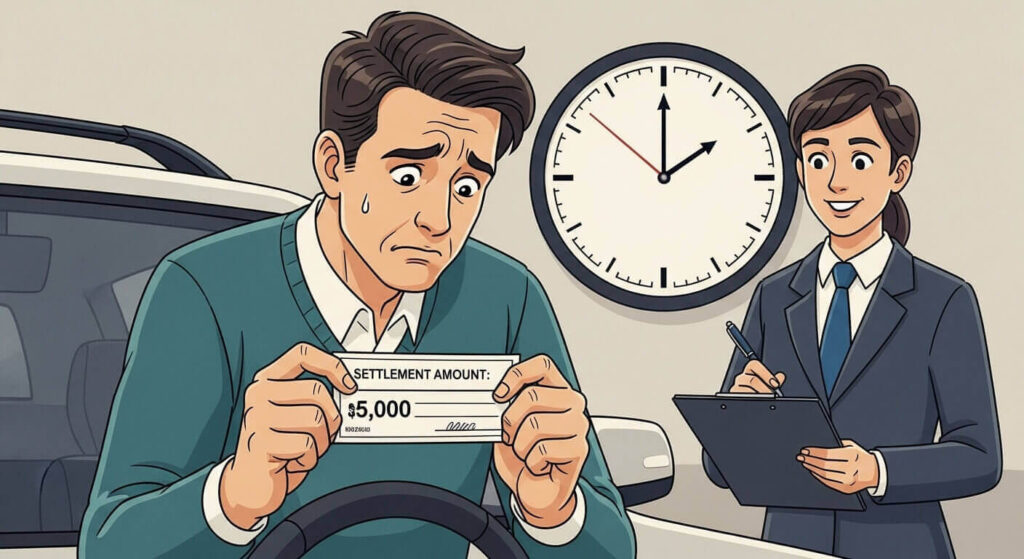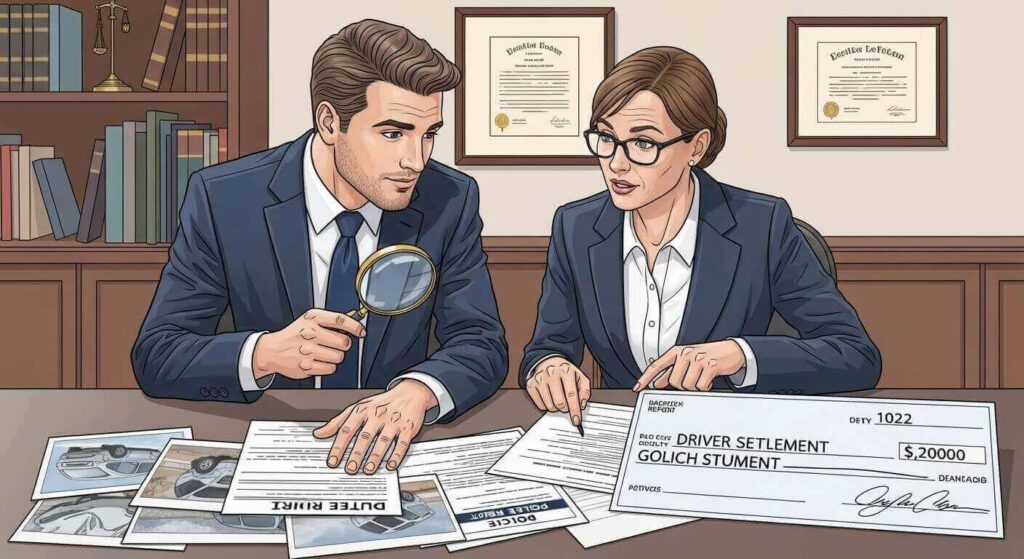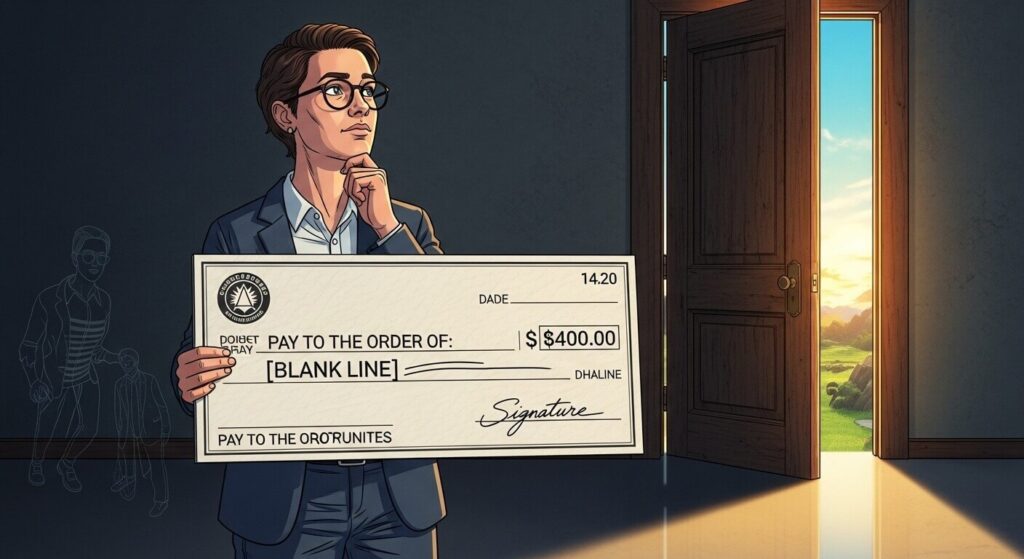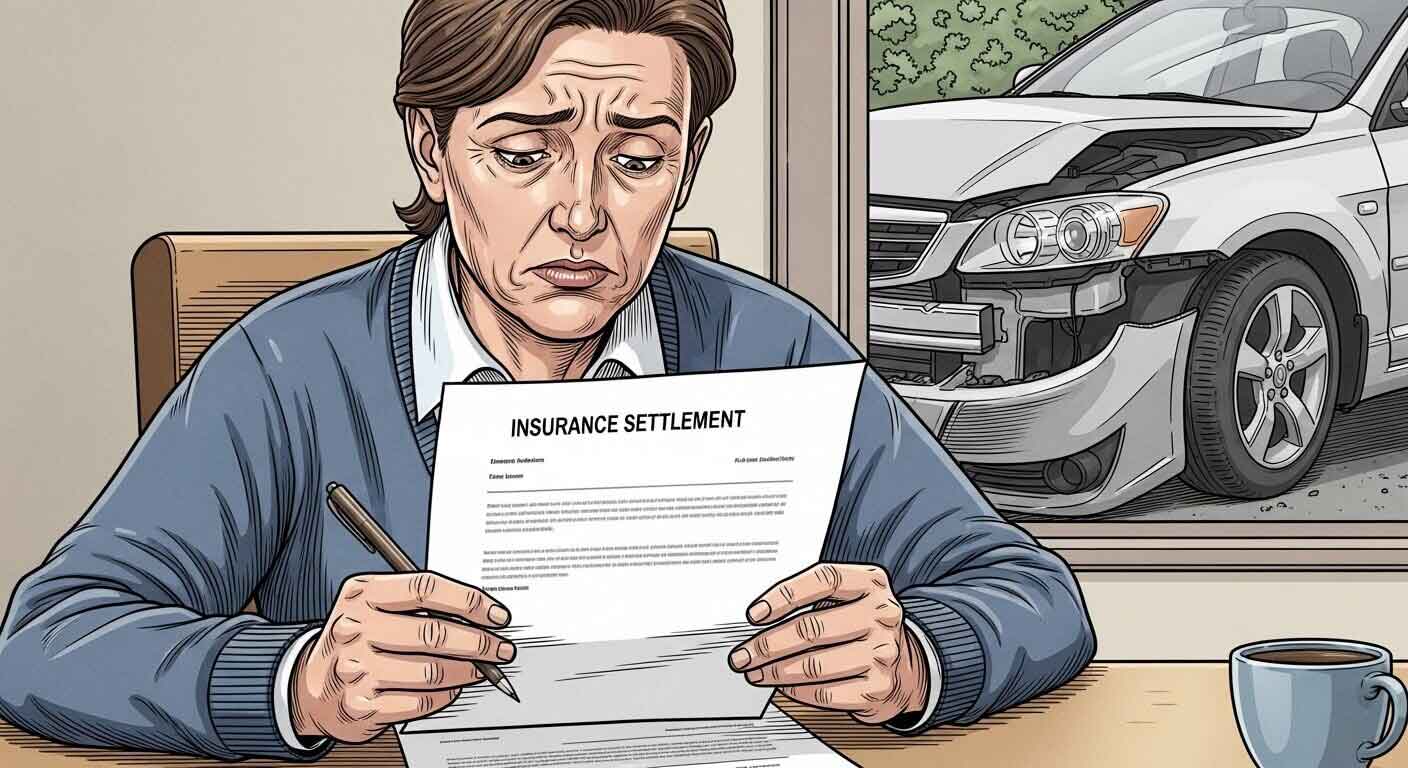If you’ve recently been in a car accident, one of the first questions you might ask is: “Should I accept first offer from insurance company for car?”
You may also like: What happens if you crash a financed car with insurance
In most cases, the answer is no—at least not without a careful review. That first settlement offer car accident victims receive is rarely designed to fully compensate you for all your damages. Do insurance companies want to settle quickly? Absolutely. Early settlements save them money and limit your ability to pursue more compensation later.
This guide explains why the car insurance settlement offer you get right after the crash may be too low, how to negotiate for more, and what to do if you’re not happy with settlement offer amounts.
1. Why the First Offer Is Usually Low

When you’re presented with the first settlement offer car accident adjusters make, it can be tempting to accept just to move on. But here’s why you should pause:
- Insurance companies often don’t yet know the full extent of your injuries or property damage.
- They also know that quick offers can keep you from hiring a lawyer or discovering hidden injuries.
- Accepting too soon can leave you still in pain after settlement, with no legal way to get more money.
Adjusters are trained to sound helpful while subtly pushing you to take the deal, sometimes suggesting it’s “the best you’ll get” or warning that delays could jeopardize payment. That’s why asking yourself should I accept first offer from insurance company for car is crucial before making any decision.
2. Signs of a Lowball Offer
A car accident insurance settlement that’s too low can often be spotted by:
- Not covering all vehicle repair costs.
- Ignoring lost wages or out-of-pocket costs like transportation.
- No payment for inconvenience after the car accident.
- Minimal medical coverage that doesn’t account for future treatment.
If your insurance settlement offer arrives just days after the crash, that’s often a calculated move to catch you before you’ve had a complete medical evaluation.
3. How to Negotiate a Better Settlement

You have the legal right to negotiate. Knowing how to negotiate insurance settlement or specifically how to negotiate with insurance company after car accident can significantly boost your payout:
- Document everything—repair bills, medical records, photos, and witness statements.
- Understand your policy limits and adjuster tactics.
- Use a counteroffer letter to push back politely but firmly.
If you’re not happy with settlement offer amounts, remember that rejecting the first one doesn’t end your claim—it’s simply part of the process. If you want to go further, hiring a personal injury attorney often results in higher settlements.
4. Understanding Car Accident Medical Claim Settlements
Medical claims can be complex:
- Sometimes health insurance will cover accident injuries, but in many cases your car accident insurance settlement will be the primary source of payment.
- Insurers often don’t pay bills directly—you may have to pay upfront and get reimbursed.
- Settlements may include compensation for pain and suffering, therapy, and psychological care.
In “no-fault” states, your own insurer covers medical bills up to a limit regardless of fault; beyond that, you pursue the at-fault driver’s insurer.of who caused the accident. After that, you may need to seek compensation from the at-fault driver’s insurer.
5. Factors That Affect Payout Amounts
The amount of your car insurance settlement offer depends on:
- Type and severity of injuries (e.g., whiplash vs. broken bones).
- Whether you need long-term treatment or have permanent disabilities.
- The quality of your documentation—photos, receipts, and medical evaluations all strengthen your case.
If you’re wondering what is a good settlement offer, it’s one that fully covers your damages now and in the future, including lost income and ongoing medical care.
6. What Happens If You Reject the Offer
Many drivers worry about what happens when you reject an insurance settlement offer or more specifically what happens when you reject a car insurance settlement offer. In reality:
- You can reject the offer and submit a counterproposal.
- The insurer may return with a higher offer—especially if you provide solid evidence.
- In some cases, you may move into mediation or involve an attorney.
Knowing how to reject an insurance settlement offer professionally—by documenting your reasons and proposing a fair alternative—is key to keeping negotiations productive.
7. When to Accept a Settlement
So, when to accept a settlement offer? Consider agreeing when:
- The settlement covers property damage, medical costs, and lost wages in full.
- Your doctor has cleared you, minimizing the risk of post-settlement pain.
- The offer accounts for future medical needs and inconvenience.
Always check how long do you have to accept a settlement offer—deadlines vary by state and insurer, but once you sign, you can’t reopen the claim. Asking yourself again should I accept first offer from insurance company for car before signing can save you from regret.
8. Get Professional Guidance
If you’re unsure, a personal injury attorney or claims specialist can review your car accident insurance settlement and help determine if it’s fair. Professional help often turns a disappointing first offer into a far better final outcome.
For detailed, unbiased tips on dealing with insurance companies, visit the Insurance Information Institute’s settlement guide.
9. Post-Settlement Considerations

Once you accept, the claim is closed for good. Use your settlement wisely, keep records for tax purposes, and remember: rushing into the first offer may save time now, but can cost you thousands later.
Bottom line: The first settlement offer car accident victims receive is almost always negotiable. Knowing how to negotiate a car accident settlement—and when to push back—can mean the difference between a lowball payout and full compensation. And never forget to ask: should I accept first offer from insurance company for car—because the answer often leads to a better deal.
FAQs
Should I accept first offer from insurance company for car if it seems fair?
Only if it truly covers all damages and future costs, verified by a professional.
How long does insurance have to settle a claim?
Varies by state, typically 30–60 days after agreement.
Can I negotiate a higher payout without a lawyer?
Yes, but legal help often boosts your final amount.
What’s a typical insurance payout for whiplash?
Anywhere from $2,500 to over $20,000 depending on severity.
What if I’m still in pain after settlement?
You can’t reopen the claim, which is why caution is key.

